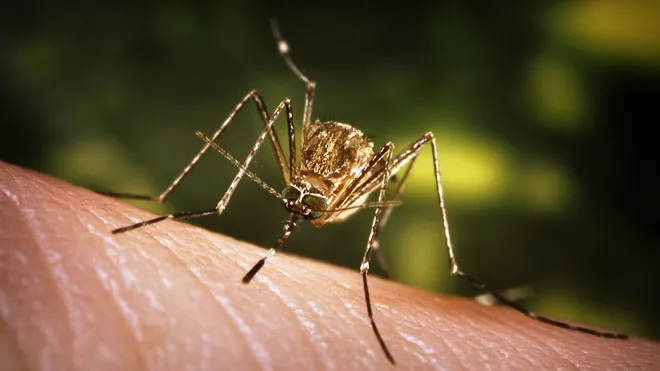Last summer in Idaho, a mosquito bit Brittany Yeager, who was 29 at the time and a leader at a Girl Scout camp. Once an active runner, now— at age 30—Yeager takes 23 pills a day for signs and symptoms that range from paralysis, pain, and seizures to muscle spasms, depression, and memory problems. Disabled and using an electric wheelchair, she recently learned to stand and take a few steps. Her family is behind her, including her two children, ages 7 and 10. Her daughter, fearing mosquitoes following her mother’s experience, was hesitant to go back to camp.
Sergeant John Brittingham’s Fight:
John Brittingham, 67, was working in his deck in Santa Fe, New Mexico, when a mosquito bite changed his life. Ten months later, after rehabilitation and months of physical therapy, he remains hospitalized, struggling to regain bodily function. Weaned off a ventilator for a second time recently, his wife hopes this marks the beginning of a sustained recovery.
Jule Hamrick’s Struggle:
Jule Hamrick, 62, was bit by a mosquito in her Roswell, Georgia backyard. At the time she believed West Nile virus was one of two things: a mild flu or fatal. Her experience told another story. Now, hospitalized with the most severe form of the virus that attacks the brain and nervous system, she knows firsthand about the long-term effects.
The Extent of West Nile Virus:
About 1,000 Americans are hospitalized each year with severe West Nile virus, and another 1,500 develop milder, flu-like symptoms. Those cases are likely a small fraction of actual infections, experts say. Estimates are that up to 80% go undetected. Nearly 20% of hospital patients had antibodies, indicating that they had been previously infected with the mosquito-borne virus, a study found.
Early Activity and Potential Outbreak:
This year, West Nile activity started earlier than usual, and that has increased concerns of a major spike. According to Dr. Kristy Murray of Emory University, large outbreaks—once every decade or so—track with birds losing immunity. The last big outbreak occurred in 2012, and a buildup is considered due. Houston, especially after Hurricane Beryl, is expected to be a hotspot, with Harris County already reporting numerous cases.
Challenges in Vaccines and Treatment:
Even with several promising vaccine candidates in the works, none are moving forward to phase 3 trials required by the Food and Drug Administration for final approval. Among them are unpredictability in outbreaks and concerns over the safety of vaccines among immunocompromised populations. It’s also hard to develop treatments like monoclonal antibodies because large-scale trials are difficult to execute.
Yeager’s Road to Recovery Isn’t Finished Yet:
Brittany Yeager has been making slow progress, recently getting to walk a few steps after months in a wheelchair. Her financial burden has left her family on the lookout for help through a GoFundMe page. Her daughter is still mortally scared of mosquito bites, to which she reassures her by saying that such severe reactions are very rare.
Brittingham’s and Hamrick’s New Normals:
Both Brittingham and Hamrick face a long time on the road to recovery. Months of grueling rehabilitation have left Brittingham being cared for long-term in the hopes that he may be able to become independent one day. Hamrick, while learning to walk again, suffered paralysis in his upper body and relies on others to help him perform tasks day to day.
The Greater Effect and Protective Measures:
Dr. Murray’s research has shown that even at much milder levels of infection, West Nile virus can still cause chronic neurological damage similar to those experienced in long Covid. Protection from mosquito bites is the best defense. CDC suggests using repellents containing DEET, Picaridin, or oil of lemon eucalyptus, and to wear long sleeves and pants—protecting skin as much as possible—the dawn and dusk time periods, which are the peak activity times for mosquitoes.
Awareness and Readiness:
Public awareness and preventive measures are extremely important, especially during this peak season of West Nile virus. Check your local health reports and the CDC maps to know about areas of active virus transmission. A little precaution can reduce infection and its serious consequences.
